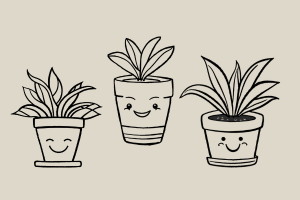
Comprehensive Guide to Dealing with Common Houseplant Pests
Introduction
Houseplant pests can be a nightmare for plant lovers, but with proper identification and timely intervention, you can effectively manage them. This guide outlines common houseplant pests and offers practical solutions to keep your indoor plants thriving.
Common Houseplant Pests
1. Aphids: Small, soft-bodied insects that cluster on new growth. 2. Mealybugs: White, cottony insects found in leaf joints and crevices. 3. Spider Mites: Tiny pests that create fine webbing on plants. 4. Fungus Gnats: Small, dark flies that hover around plants. 5. Scale Insects: Hard, shell-like pests that attach to stems and leaves. 6. Thrips: Slim insects that feed on plant juices, causing silver streaks on leaves.
Identification and Prevention
Regularly inspect your houseplants for signs of pests such as sticky residue, webbing, distorted leaves, or visible insects. To prevent infestations, maintain proper plant hygiene, avoid overwatering, and quarantine new plants before introducing them to your collection.
Treatment Methods
1. Neem Oil: Effective against a wide range of pests, neem oil suffocates and disrupts the feeding of insects. 2. Insecticidal Soap: Safe for most houseplants, insecticidal soap kills soft-bodied pests on contact. 3. Horticultural Oil: Smothers pests and their eggs, particularly effective against scale insects. 4. Diatomaceous Earth: A natural insecticide that damages the exoskeleton of pests. 5. Beneficial Insects: Introduce predators like ladybugs or lacewings to control pest populations.
Precautions and Aftercare
Always read and follow instructions when using pest control products. After treatment, monitor your plants closely for any signs of re-infestation. Improve air circulation and avoid overcrowding plants to prevent future pest problems.
Conclusion
By staying vigilant and taking proactive measures, you can effectively manage common houseplant pests and ensure the health and beauty of your indoor garden. Remember, early detection and intervention are key to keeping your plants pest-free.